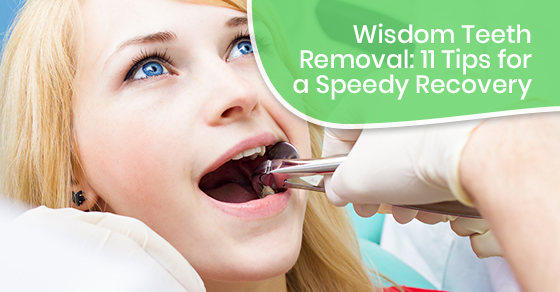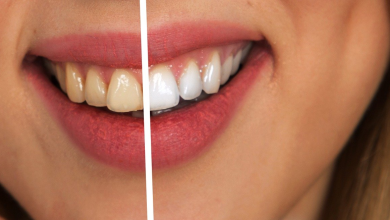How to Relieve Wisdom Tooth Pain before Removal: Quick and Effective Methods
To relieve wisdom tooth pain before removal, you can apply a cold compress to the affected area and take over-the-counter pain relievers as directed by a dentist. Wisdom tooth pain before removal can be unbearable, but there are several ways to mitigate the discomfort.
Applying a cold compress directly to the affected area can help to reduce inflammation and numb the pain. Over-the-counter pain relievers, such as ibuprofen or acetaminophen, can also provide temporary relief. However, it’s crucial to consult with a dentist before taking any medication.
Additionally, maintaining good oral hygiene by gently rinsing with warm saltwater can help alleviate wisdom tooth pain. By following these simple remedies, you can find temporary relief until your wisdom tooth is removed.

Credit: www.milltowndental.com
Causes Of Wisdom Tooth Pain
If you are experiencing wisdom tooth pain, there are a few common causes that you should be aware of. One reason for this pain is the position of the wisdom tooth itself. If the tooth is positioned in a way that it doesn’t have enough space to fully emerge, it can cause significant discomfort. This is known as an impacted wisdom tooth. In addition to the positioning, inflammation or infection around the wisdom tooth can also lead to pain. When the area surrounding the tooth becomes inflamed or infected, it can result in throbbing or aching pain that can be difficult to ignore.
Symptoms Of Wisdom Tooth Pain
Wisdom tooth pain can be extremely uncomfortable and often requires removal. Here are some symptoms of wisdom tooth pain to look out for:
Toothache and jaw pain: Wisdom tooth pain is commonly accompanied by a throbbing toothache that radiates throughout the jaw. The pain can range from mild to severe and can be aggravated by chewing or biting down.
Swelling and redness in the gum area: When a wisdom tooth becomes impacted, it can cause inflammation in the surrounding gum tissue. This leads to swelling, redness, and tenderness in the affected area.
Bad breath or taste in the mouth: Impacted wisdom teeth can create pockets in the gums where food particles and bacteria can accumulate. This can result in persistent bad breath or an unpleasant taste in your mouth.
Difficulty in opening the mouth: In some cases, the pressure and pain from impacted wisdom teeth can make it difficult to fully open your mouth or move your jaw comfortably.
Home Remedies For Temporary Relief
Home remedies for temporary relief before wisdom tooth removal can be helpful in alleviating the pain. One effective method is a warm saltwater rinse. Simply mix half a teaspoon of salt in a glass of warm water, and gently swish it around your mouth for a few minutes. Repeat several times a day to reduce inflammation and combat bacteria.
Applying a cold compress to the affected area can also provide relief. Wrap a few ice cubes in a thin cloth or use a cold pack, then apply it to the outside of your cheek for 15-20 minutes. This can help in numbing the area and reducing swelling.
Over-the-counter pain relievers such as ibuprofen or acetaminophen can be taken as directed to help manage the pain. Remember to carefully follow the instructions and consult your doctor if you have any concerns or conditions.
Clove oil, known for its analgesic properties, is another beneficial remedy. Applying a small amount of clove oil to a cotton ball and placing it gently on the affected area can help in numbing the pain temporarily.
A tea bag compress can also provide temporary relief. Steep a tea bag in hot water, squeeze out the excess liquid, and hold it against the affected area for 15-20 minutes. The tannins in tea have anti-inflammatory properties that may help to soothe the discomfort.
Natural Remedies To Alleviate Pain
Wisdom tooth pain can be quite unbearable, but there are natural remedies that can help alleviate the discomfort before removal. Garlic and salt paste can be applied directly to the affected area to reduce pain and inflammation. Creating a turmeric paste by mixing turmeric powder with water can also provide relief due to its anti-inflammatory properties.
Another effective remedy is making an onion poultice by cutting an onion into small pieces, placing them in a cloth, and applying it to the painful area. The natural enzymes in onions can help reduce pain and swelling. Aloe vera gel can be applied topically to soothe the gums and reduce pain. Additionally, rinsing with a few drops of peppermint oil mixed with water can provide temporary relief.
These natural remedies can help minimize wisdom tooth pain temporarily, but it is essential to consult a dentist for proper diagnosis and treatment options.
Lifestyle Changes To Manage Wisdom Tooth Pain
Maintain oral hygiene: Good oral hygiene is essential in managing wisdom tooth pain. Make sure to brush your teeth twice a day with a soft-bristled toothbrush and be gentle while brushing around the affected area. Don’t forget to floss regularly to remove any food particles that may be causing irritation.
Avoid foods that aggravate pain: When experiencing wisdom tooth pain, it’s important to avoid foods that can worsen the discomfort. Avoid hard and chewy foods that can exert pressure on the affected area. Opt for softer foods that are easier to eat and won’t cause further irritation.
Apply gentle pressure to relieve discomfort: Applying gentle pressure to the affected area can help alleviate the pain. Use a clean finger or a gauze pad to apply gentle pressure on the area where the wisdom tooth is erupting.
Avoid smoking and alcohol consumption: Smoking and consuming alcohol can aggravate wisdom tooth pain and delay the healing process. It’s best to avoid these habits until the pain subsides and the tooth is removed.
Regular Dental Check-ups
Regular dental check-ups are crucial for maintaining overall oral health. They play a significant role in the prevention and early detection of issues related to wisdom teeth. During these check-ups, your dentist can assess the growth and alignment of your wisdom teeth and identify any potential problems. By detecting issues early on, you can avoid unnecessary pain and complications.
Preventive dental care is essential for maintaining healthy teeth and gums. It involves regular brushing, flossing, and using mouthwash. These practices help eliminate plaque and prevent tooth decay, gum disease, and other issues that can cause wisdom tooth pain. Additionally, maintaining good oral hygiene can reduce the risk of bacterial infections, which are commonly associated with wisdom tooth pain.
If you are experiencing wisdom tooth pain, it is crucial to consult a dentist for professional advice. They can recommend pain management techniques such as using over-the-counter pain relievers, applying cold packs to reduce swelling, or using numbing gels. However, it is important to remember that these are temporary measures and do not provide a permanent solution. Ultimately, the best course of action is to have your wisdom teeth removed by a dental professional to relieve the pain and prevent further complications.
Maintaining Oral Health
Proper brushing and flossing techniques are essential for maintaining oral health. Brush your teeth at least twice a day using a soft-bristled toothbrush and fluoride toothpaste. Hold your brush at a 45-degree angle to your gums and use gentle, circular motions to clean all tooth surfaces. Remember to floss daily to remove plaque and food particles from between your teeth and along the gum line. This helps prevent gum disease and tooth decay.
Using Mouthwash
Incorporating a mouthwash into your oral hygiene routine can provide additional relief for wisdom tooth pain. Look for a mouthwash that contains an antimicrobial agent like chlorhexidine to reduce bacteria in the mouth. Swish the mouthwash around your mouth for about 30 seconds, ensuring it reaches the area around your wisdom teeth. Spit out the mouthwash and avoid eating or drinking for at least 30 minutes afterward to allow the active ingredients to work effectively.
Dietary Modifications For Oral Health
| Foods to include | Foods to avoid |
|---|---|
| Soft foods like yogurt, smoothies, and mashed potatoes | Hard and crunchy foods like nuts, chips, and apples |
| Warm liquids like soup, tea, and broth | Spicy and acidic foods like hot sauce and citrus fruits |
| Ice packs or cold foods like ice cream to reduce swelling | Alcohol and carbonated beverages that may irritate the extraction site |
Potential Risks And Complications
Wisdom tooth extraction is a common dental procedure that carries potential risks and complications. One of the risks includes the development of infection and gum damage. Infection can occur if bacteria enter the extraction site, leading to pain, swelling, and an unpleasant taste in the mouth. Gum damage may result from trauma during the extraction process, causing bleeding and discomfort.
Another potential complication is the onset of sinus problems and earache. When an upper wisdom tooth is removed, there is a possibility of sinus irritation as the extraction site is close to the sinus cavity. This can lead to sinus congestion, pressure, and even sinus infection. Earache can also occur due to the close proximity of the wisdom tooth to the ear canal.
Furthermore, jawbone damage is a rare but serious complication. The extraction process can potentially affect the surrounding jawbone, leading to fractures or other structural issues. This can result in pain, difficulty in opening or closing the mouth, and the need for additional procedures to repair the damage.
Frequently Asked Questions Of How To Relieve Wisdom Tooth Pain Before Removal
How Can I Relieve Wisdom Tooth Pain At Home?
You can try using over-the-counter pain relievers, rinsing your mouth with warm saltwater, or applying a cold compress to the affected area. However, it’s important to consult with your dentist for proper diagnosis and treatment options.
What Foods Should I Avoid If I Have Wisdom Tooth Pain?
Avoid hard, crunchy, and chewy foods that can irritate the area around your wisdom tooth. Stick to soft foods like mashed potatoes, yogurt, and soup to prevent further discomfort.
Is It Normal To Have Pain After Wisdom Tooth Extraction?
It is common to experience some pain and discomfort after a wisdom tooth extraction. However, if the pain becomes severe or persists for several days, it is important to contact your dentist for further evaluation.
Can Wisdom Tooth Pain Go Away On Its Own?
Wisdom tooth pain may temporarily subside on its own, but it’s crucial to address the underlying issue. Ignoring the pain can lead to further complications such as infection or damage to adjacent teeth.
Conclusion
There are several effective ways to relieve wisdom tooth pain before removal. From applying cold compresses to taking over-the-counter pain medications, these remedies can provide temporary relief for discomfort. Additionally, rinsing with warm saltwater and using clove oil can help alleviate inflammation and numb the affected area.
However, it is important to consult a dentist for proper diagnosis and treatment. By addressing the pain before the extraction, patients can find some relief and make the process more manageable.




